They came forward with stories of abuse that are varied and vile.
A female police officer in Chicago says a supervisor forced her to perform oral sex on him inside a car. A female officer in Philadelphia says a sergeant grabbed her hand and placed it on the crotch of his pants. And a female officer in New York says one of her superiors hacked into her Snapchat account and showed off her intimate photos to a male commander.
The #MeToo movement sparked a societal reckoning against sexual misconduct, ushering in reforms designed to reduce workplace harassment and prompting the firing of abusive men in a variety of industries.
But many women in law enforcement say the movement has yet to arrive.
Sexual harassment and gender discrimination remain rife in some of the country’s largest police departments, and many of those accused of them don’t face significant punishment, according to an NBC News review of more than 60 lawsuits that were settled or won at trial, interviews with more than 15 female officers and an analysis of internal police documents.
The lawsuits stem from complaints against the sheriff’s office in Los Angeles County and police departments in New York, Los Angeles, Philadelphia and Chicago, where taxpayer-funded payouts over the past five years totaled more than $40 million in officer-on-officer abuse cases.
The problems appear to be systemic. Female victims’ lives are often upended after they come forward because of flawed internal reporting systems that result in accusers’ identities getting out and a culture of retaliation, according to officers who sued.
Many officers who are accused of sexual abuse and harassment aren’t fired or even demoted, according to a review of department rosters in New York, Los Angeles and Philadelphia.
Some end up getting promoted.
Take, for example, Capt. Salvatore Marchese of the New York Police Department.
In 2013, a female officer filed a lawsuit alleging that Marchese, then a lieutenant, had pressured her to perform oral sex on him — twice — and then punished her when she rebuffed his further advances. The city settled the suit for $100,000, according to previously unreported court documents.
And yet, Marchese was still promoted to captain and placed in charge of a stationhouse in the Bronx, where he was accused of mistreating a second female underling last year.
The officer, Anajess Alvarez, says in a lawsuit that she was pregnant with her second child and struggling with crippling morning sickness when she asked Marchese to move her off the overnight shift.
“You were one of my best cops,” he told her, according to Alvarez. “Who told you to go get pregnant?”
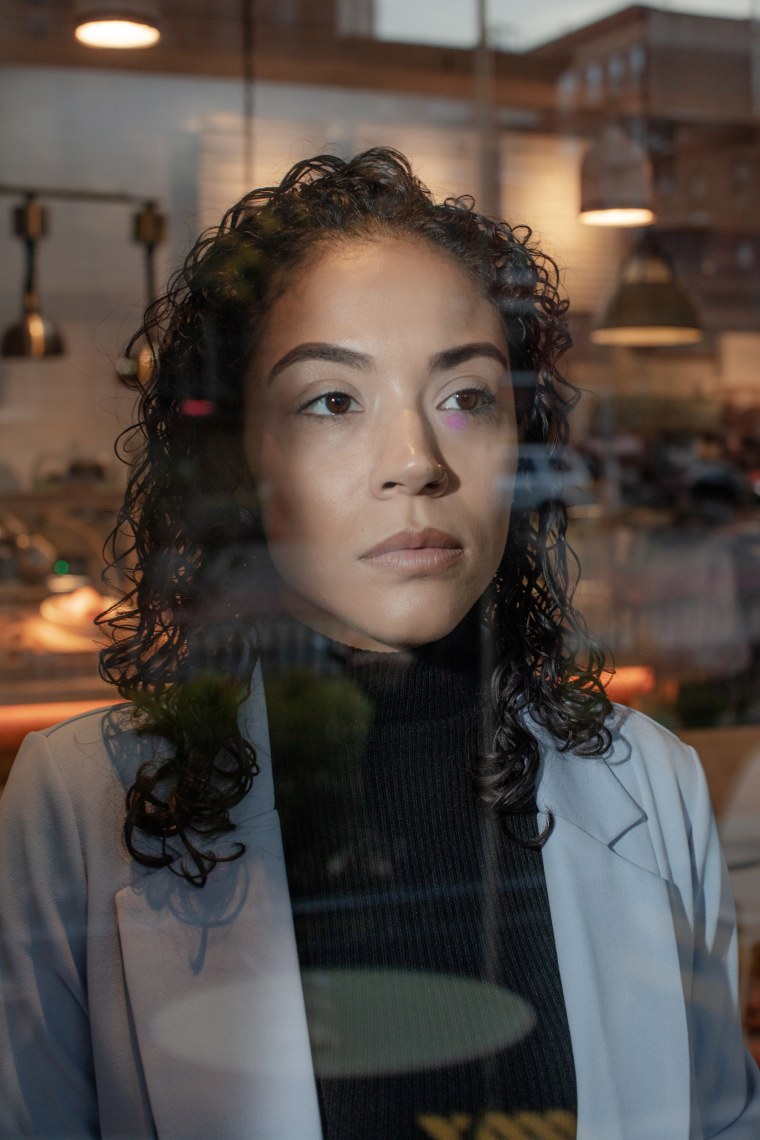
Alvarez, whose lawsuit alleging that Marchese presided over a toxic work environment continues, no longer sees a future for herself in the NYPD. Marchese, meanwhile, still has a senior position in the department: He’s now the commanding officer of a stationhouse in Upper Manhattan.
“You get sued for sexual stuff and you get a whole precinct?” Alvarez said. “How can you be in charge of male and female officers with the record that you have?”
Marchese didn’t respond to requests for comment. In court papers, he denied the allegations.
Of the 87 NYPD officers accused in court papers of abusing female officers, 27 have since moved up in rank, according to an NBC News review.
Nine have stayed at the same rank, and only one was demoted. Forty-nine have left the force, but only one is known to have been fired.
The NYPD didn’t respond to detailed questions about its sexual harassment reporting system, the statuses of the officers or whether those who are no longer with the department were fired.
An NYPD spokesperson said in a statement that the agency “does not tolerate discrimination in any form,” investigates all complaints and “offers several reporting options for NYPD employees, including anonymously.”
“While we have made recent strides, there is still a lot more work ahead,” the spokesperson said.
Of the 20 Los Angeles police officers accused in the court cases, one has since been promoted. Six stayed at the same rank. A total of 13 have left the department, but it’s unclear whether any were fired over the allegations.
A Los Angeles police spokesperson said the agency has a "zero-tolerance policy for sexual harassment."
“For decades, the department has had a policy mandating reporting of sexual misconduct to a supervisor,” the spokesperson added.
“This year, the department adopted an even stronger practice to ensure a safe and productive workplace. Supervisors must now also report perceived inequitable conduct to the City Personnel Department’s Office of Workplace Equity — along with a plan to address it.”
Nineteen Philadelphia police officers were named as abusers in closed court cases reviewed by NBC News. Five have since been promoted, and six stayed at the same rank.
Seven are no longer with the department. One officer was demoted because of sexual harassment allegations in a lawsuit.
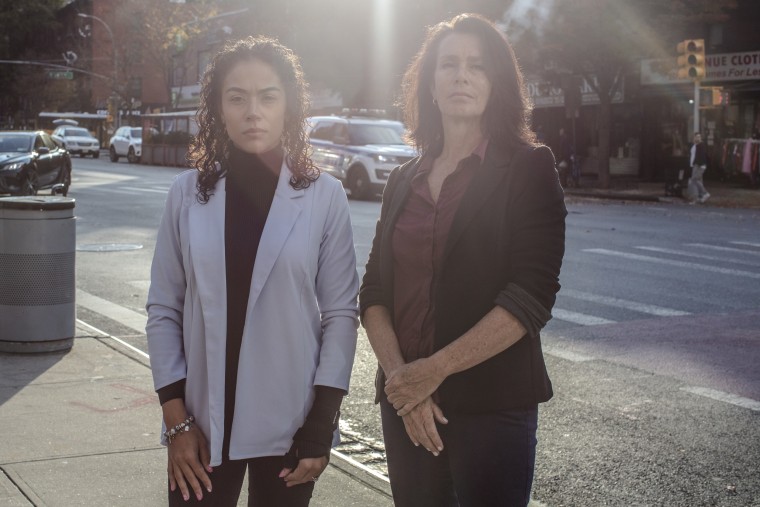
A Philadelphia police spokesman, Sgt. Eric Gripp, said that the department has made strides in hiring more women but that union contracts have blocked efforts by its first female commissioner, Danielle Outlaw, to fire or discipline problem officers.
“Despite Commissioner Outlaw’s dogged efforts to advance a more equitable and inclusive culture within the PPD, systemic roadblocks continue to hinder this department’s efforts in that mission,” Gripp said.
None of the officers named in the two lawsuits filed against the Chicago Police Department are still with the department, records show. Of the 14 Los Angeles County sheriff’s deputies accused in lawsuits, two were promoted, six are in the same roles, and six are no longer with the department.
The reporting of sexual harassment has led to a variety of reprisals, according to the lawsuits reviewed by NBC News: demotions, overnight posts and sometimes far worse.
In New York, a sergeant tossed a mousetrap into a room during a roll call after a female officer reported that he had made sexual advances toward her, according to her lawsuit.
In Philadelphia, a male sergeant stalked a female underling and broke into her car after she reported that he had made comments about her appearance and showed up at her house uninvited, according to her lawsuit.
A car belonging to a female officer with the Los Angeles County Sheriff’s Department was vandalized and a tire was punctured after she reported sexual harassment, according to her lawsuit.
Experts say the major policing groups advocate for more women to join the ranks but have been slow to address the sexual harassment issue, if they address it at all.
“If they really want to recruit women, that’s one of the issues that has to be addressed,” said Ivonne Roman, a former police chief of Newark, New Jersey, who co-founded 30x30, an organization that aims to increase female representation in law enforcement. “Is this a culture where bad behavior is allowed?”
The harassment and discrimination lawsuits capture only a slice of the problem, female former police officials say. Many women who face harassment or discrimination never pursue legal action, and internal abuse complaints aren’t made public.
“It takes a lot of courage to stand up against these government agencies,” said Joanne Archambault, a former San Diego police sergeant who helps police agencies craft reforms for sex assault investigations. “I couldn’t do it.”
‘Resolved and forgotten’
Karolin Clarke, a K9 officer with the Los Angeles Police Department, got a new boss when Sgt. Joe Danny Garcia took over the unit in May 2015.
Within weeks, Garcia began massaging her shoulders during meetings, commenting to male colleagues about her body and purposely walking in on her changing, Clarke later said in court papers.
“It was just really disgusting,” she said. “Nobody in our unit acted like that, and it’s coming from a supervisor.”
She said the behavior got so bad that the other male officers on her team, Elliot Zibli and David Dooros, sat Garcia down and told him to stop. But the plea went nowhere, they said, and Clarke and her co-workers told their lieutenant about his behavior.
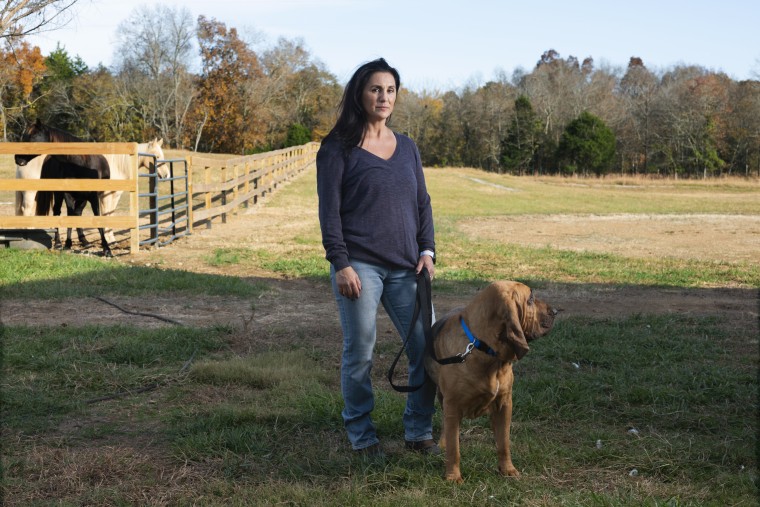
“At what point is he going to go someplace, and is there going to be another female that’s not going to have a Dave or Elliott around to protect her from him?” Dooros said.
After the lieutenant reported the complaint up the chain of command, he was stripped of his role overseeing the K9 unit, according to the officers. And then, Clarke and her colleagues say, the retaliation began.
Top brass denied training for new bloodhounds to learn how to follow trails and forced them to patrol with aging dogs whose ability to sniff out missing children and homicide suspects had deteriorated, according to a lawsuit Clarke, Zibli and Dooros filed against the LAPD in 2016.
“It took lieutenants and captains and sergeants all to make the retaliation work. And they all did it,” Clarke said.
Clarke settled with the city before trial for $1.6 million, because, she said, she wanted to keep her bloodhound, Gemma. Zibli and Dooros took their case to trial and won. In 2019, the city of Los Angeles paid the two men $6.7 million.
Garcia, who is now a detective, didn’t respond to requests for comment. In court papers, he denied the allegations.
In the last five years, Los Angeles County and the city of Los Angeles spent over $25 million paying out lawsuits brought by officers from the LAPD and the Los Angeles County Sheriff’s Department — all of whom say they were sexually harassed or discriminated against on the job, NBC News found.
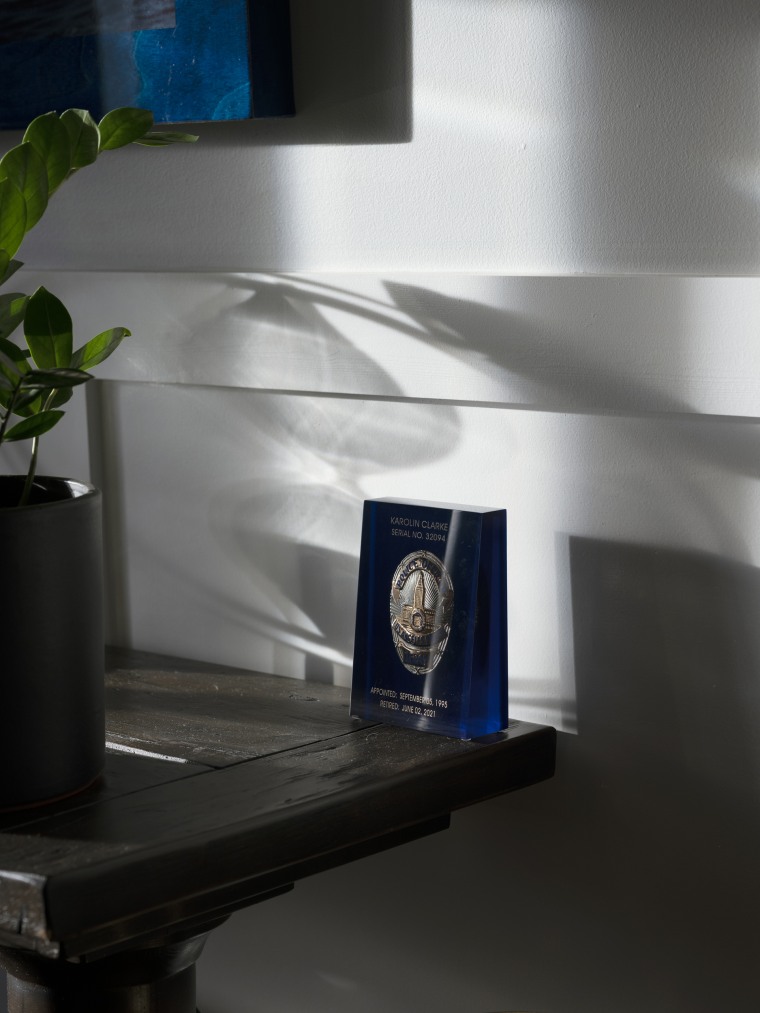
In New York City, taxpayers have spent nearly $9 million since 2017 on similar claims.
In Chicago, the bill was over $4 million, records show. A former police commissioner is now at the center of a federal lawsuit accusing him of sexually abusing his driver, a female officer. He said the relationship was consensual.
The Philadelphia Police Department paid out $2.8 million over the same period.
In most if not all of the cases, the settlements were reached without any admission of liability.
Legal experts say police departments have little incentive to curtail officer-on-officer abuse because the payouts rarely come out of the departments’ budgets. Instead, cities and taxpayers foot the bill.
Joanna Schwartz, a professor at the UCLA School of Law who researches the cost of officer misconduct, argued that until city leaders force police departments to pay their own legal fees, little will change. In addition, internal cases rarely involve video evidence that goes viral, which Schwartz says makes it difficult to attract public attention.
“The cases are paid for, resolved and forgotten,” Schwartz said.
Multiple female officers who sued their departments say they were placed in “punishment posts” after they reported complaints internally.
Audra McCowan, a former Philadelphia police corporal, had been on the force for 15 years when, she says, one of her subordinates, Officer Curtis Younger, began coming on to her in January 2019.
He told McCowan she was sexy and called her “babe” instead of “corporal,” she said.
A few weeks later, Younger’s unwanted flirtations turned aggressive, McCowan said.
During a conversation at McCowan’s desk, Younger noticed several photos of her husband, she said.
“You have pictures of this motherf----- all over your desk,” McCowan recalled him saying.
He then tried to yank off her wedding ring, McCowan said.
“I couldn’t believe that he had actually touched me and violated me in that way,” McCowan said. “I outranked him, but he’s a man. He’s larger than me.”
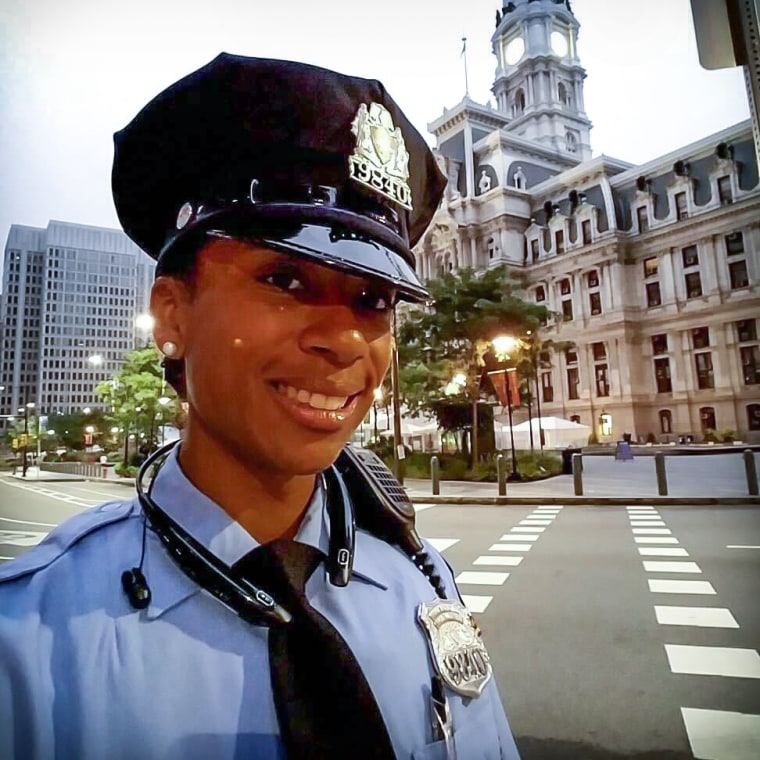
After she filed a formal complaint, she was transferred to the radio room and given nothing to do. Younger, meanwhile, was allowed to stay in his job, she said.
In 2019, McCowan teamed up with a female colleague, who also alleged that Younger had harassed her, to file a federal lawsuit against him and the city of Philadelphia.
“The [Philadelphia Police Department’s] well-settled custom of sexual harassment permeates all 21 police districts,” it said.
Police Commissioner Richard Ross resigned in August 2019, one month after McCowan filed her lawsuit.
McCowan said Ross took no action after she told him about the alleged abuse. In the suit, she attributed his failure to act to lingering resentment over her decision to end their two-year affair nearly a decade before — a revelation that dominated the news coverage of the case. (Ross has denied the allegations.)
A jury awarded McCowan and the other female officer a total of $1 million.
McCowan retired early, saying she feared more retaliation and ostracization.
Younger, who didn’t respond to requests for comment, is still on the force. In court papers, he denied the allegations.
A Philadelphia police spokesman said Younger was suspended for one day for his behavior.
“It’s really bad for women,” McCowan said. “It’s not just Philly. It’s not just New York. It’s everywhere.”
‘This is unacceptable’
The full scope of officer-on-officer sexual abuse and harassment is unknown. Law enforcement agencies don’t publicly disclose internal harassment data.
The most comprehensive study thus far, updated in June, included a survey of 1,135 departments across the country. Out of the nearly 3,000 responses that were collected, 70% of female officers said they had experienced such things as being shown porn at work or being asked to perform sexual favors. Eight percent reported that another officer had sexually assaulted them.
“It is frustrating to see how little is being done to address this,” said a co-investigator on the study, Bruce Taylor, a senior fellow at the National Opinion Research Center at the University of Chicago.

Roughly 1 in 7 police officers in the U.S. are women, according to federal data, and the Justice Department is trying to learn why more women aren't drawn to law enforcement.
Officials tapped Jennifer Rineer, an organizational psychologist, to lead the study, which is still in process. Through interviews with female officers in 29 states, Rineer found that sexual harassment was a major barrier to attracting more women to careers in policing.
“Top leadership all the way down needs to say, ‘This is unacceptable,’’’ said Rineer, who works at RTI International, a nonprofit research institute.
The police departments reviewed by NBC News have policies that ban sexual harassment and require supervisors to report claims of abuse. But female officers say the rules often aren’t followed or enforced.
Some of the women who tried to file complaints with internal investigators said their allegations were never documented or probed. Others said that after they filed internal reports, the information spread to other officers. Some said that when they told their superiors about sexual misconduct, they were warned to stay quiet.
Jim Pasco, the executive director of the National Fraternal Order of Police, the country’s largest police union, defended the way departments handle sexual harassment complaints, saying they are often “he said, she said” cases.
“You don’t ruin someone’s career without evidence to substantiate ruining that person’s career,” he said.
Even the LAPD’s Internal Affairs Division, tasked with investigating officer misconduct citywide, has had its own issues with supervisors’ shrugging off sexual harassment complaints from within, according to a lawsuit filed by a former officer, Linda Allstot.
Allstot had been with the unit for seven years when, she says, a supervisor, Lt. Wayne Lightfoot, began complimenting her body and inviting her on trips to places like Cabo San Lucas, Mexico.

Allstot’s boyfriend was on the force, but she refused to reveal his identity when Lightfoot asked her.
Incensed, Lightfoot used his power as a lieutenant to have Allstot put under surveillance, she said in court papers and in an interview.
“This is something that I haven’t ever seen happen,” Allstot said. “The whole thing was a nightmare.”
Her boyfriend was ultimately outed, she said, and Lightfoot’s advances continued. Over the next few months, Allstot was written up for infractions that she said never happened, such as leaving her gun on her car seat.
She told a female deputy chief what was going on, but a complaint was never filed internally. Instead, Allstot said, she was again placed under surveillance.
“I remember looking out the window and seeing a surveillance van, and my daughter’s looking out the window, and she says: ‘Why are they following you? Aren’t you the police?’” Allstot said, breaking down in tears. “That was the hardest thing to have to explain to a child, and that stuck with me forever.”
Allstot sued the city and Lightfoot in 2016. A month before her trial, Lightfoot retired.
The city of Los Angeles paid Allstot $1.8 million. A few months later, another female officer sued the city alleging sexual harassment by Lightfoot. Her case was settled for $75,000.
Lightfoot didn’t respond to requests for comment. In court papers, he denied the allegations.
‘No objective process’
In recent years, an increasing number of mayors have tapped women to lead big-city police departments, among them those in New York; Sacramento, California; and Louisville, Kentucky.
The NYPD says its share of female supervisors has risen to 12%, which is higher than the national average of 9%.
But the careers of some in the small group of women who managed to rise through the 55,000-person department and achieve a three-star rank — a position held by fewer than 16 people — ultimately ended in lawsuits and resentment.
Female officers didn’t cross into the department’s layer of top management until 2003, when Joanne Jaffe was appointed a three-star chief to lead its public housing officers. She was the only one for over a decade. By 2018, five women had held the prestigious rank.
Over the next two years, three of the five left their posts and sued the department alleging widespread gender discrimination.
Jaffe was one of them. So was Lori Pollock.
Pollock started with the department during the height of the city’s crack epidemic in the 1980s. As a rookie, she gravitated toward the toughest assignments, working as a plainclothes officer and rising through the ranks as one of the few women to help run narcotics and internal affairs and then overseeing hundreds of detectives in Manhattan.
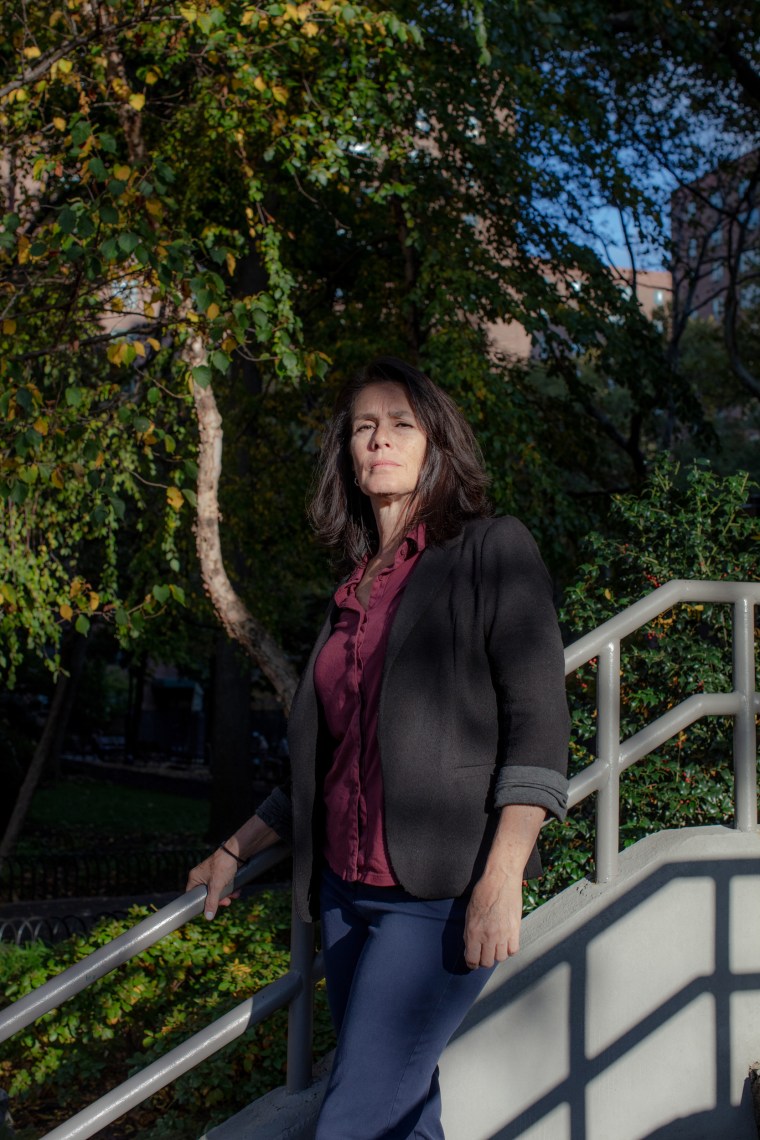
“I loved being a police officer, every stage, every rank. I loved it,” Pollock said.
Regardless of her position, she said, she always noticed a peculiar trend. “No matter how qualified I was, I wasn’t allowed to go in there until the female spot opened up,” Pollock said.
In 2018, Pollock became a three-star chief and was appointed to run the bureau in charge of lowering crime rates. A year later, with a new police commissioner, Dermot Shea, at the helm, Pollock asked to fill the position he had just left as chief of detectives. No woman has ever held the role.
“I had the experience and the credentials,” Pollock said. “Instead of getting chief of detectives, I got demoted.”
She was moved to an office that focuses on collaborating with community organizations, where she had to report to a freshly hired male bureaucrat who had never been an officer. Even worse, she said, the department gave her a team of only four to supervise (in her previous role, she was supervising 300).
Pollock believes she was skipped over because she’s not a member of the department’s “boys’ club.”
“You’re just going to wave your hand and destroy my career,” Pollock said. “There’s no objective process.”
Pollock settled in May for $367,000. Another former NYPD three-star chief got a $330,000 payout. Jaffe’s suit, which also alleges that she was forced to retire because she is white and over 58, is still in litigation.
Shea, who is now an NBC News law enforcement analyst, declined to comment. In court papers, he denied the allegations.
Pollock, now retired and living in New York City, said that after she filed her lawsuit, the vast majority of her colleagues stopped talking to her. Even high-ranking women in the NYPD iced her out.
“You didn’t believe that this could be happening until it happened to you,” she said.
